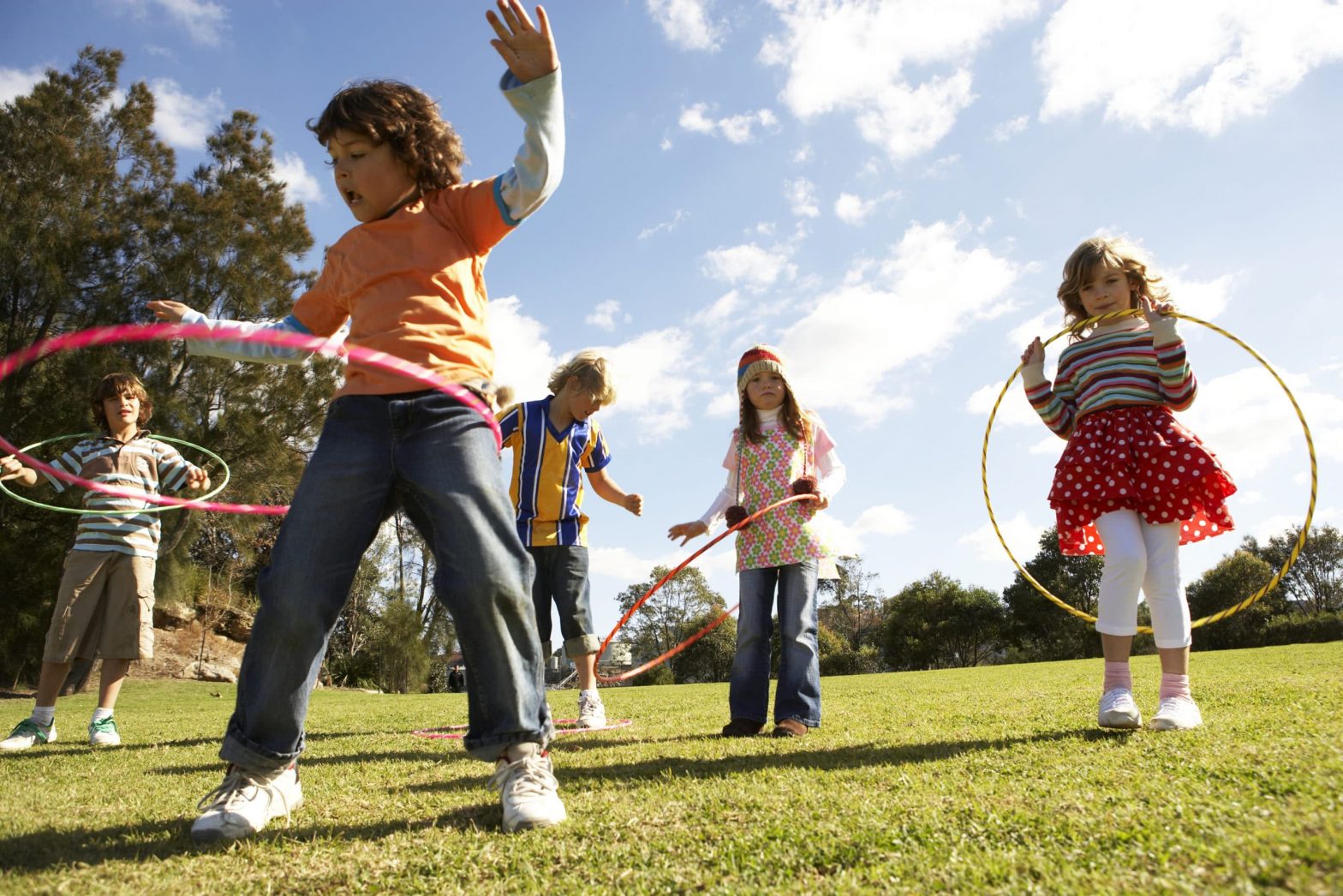Play Based Exercise for Kids – What is it and why is it important?

Hannah Bain
Accredited Exercise Physiologist
Less than 23% of 5 – 14 years old’s are moving for 60 minutes per day…. Most of us are aware of the adult recommendations for physical activity (150-300 minutes of moderate to vigorous intensity activity per week). But how well do we know the recommendations for children of each age group?
Benefits of Physical Activity for Children
We all know that physical activity is vital for our health, but do we know what benefits exercise has for children in particular? The physical, emotional, and social development of children are the most important reasons for why children should become involved in physical activity.
Some of the more specific benefits include;
· Healthy growth of bones, muscles, ligaments and tendons
· Boosts brain development which enhances academic learning
· Relaxing- improves mental health
· Improves self-esteem and confidence
· Improves social skills enabling them to create friendships and stay involved in the community
· Reduces risk of developing future chronic diseases (reduced risk of obesity)
· Improves gross and fine motor skills
· Improves sleep patterns
· Assists children to develop physical literacy
Importantly, we want to promote physical literacy which can be defined as “the knowledge and understanding of how to move your body, the confidence and motivation to move, and the social skills to be active with other people”. Unfortunately, if children do not develop physical literacy at the same time as their peers, this can create a vicious cycle where children lack the skills to engage in activities or sports with their peers, reducing their perceived ability to play sports, overall reducing their engagement in physical activity, which in turn can lead to reduced physical activity levels as an adult.
What Physical Activity is Recommended for Kids?
Physical activity needs to be enjoyable and fun for kids to promote engagement and long-term positive associations, hence the term ‘Play Based Exercise’. Activities that assist children to develop gross motor skills should also be encouraged to enable children to perform everyday activities (e.g., running, walking) and eventually develop sporting skills. In specificity, gross motor (physical) skills are those which require whole body movements involving large muscles of the body to perform everyday function (locomotor skills), including hand eye coordination skills such as throwing, catching, and kicking (object control skills).
The general healthy population physical activity guidelines for children as supported by ESSA (Exercise & Sports Science Australia) can be found below:
Toddlers (ages 1-2)
180 minutes of physical activity per day entailing energetic play e.g., running, jumping, twirling
Pre-schoolers (ages 3-5)
180 min of physical activity per day entailing 60 minutes of energetic play e.g., running, jumping, kicking, throwing.
Ages 5-7
60 minutes of moderate to vigorous physical activity (mainly aerobic). Vigorous and strength exercise at least 3 days/week. Several hours of light physical activity. No greater than 2 hours/day of screen time.
Research shows that physically active children and adolescents are more likely to be physically active during adulthood. Encouraging play based activity with children not only promotes physical literacy, confidence in sports and self-efficacy among peers, but it also can set a child up to grow into a healthy an active lifestyle in the future. Our Exercise Physiologists work with children utilising game based play to develop gross motor skills – book in via our website!
Resources:
· Exercise & Sports Science Australia, 2020. Exercise For Kids eBook. https://exerciseright.com.au/wp-content/uploads/2020/05/ESSA_Kids-Exercise-eBook-2020.pdf
· Kid Sense Child Development Corporation Pty Ltd, 2020. Gross Motor Skills. https://childdevelopment.com.au/areas-of-concern/gross-motor-skills/
